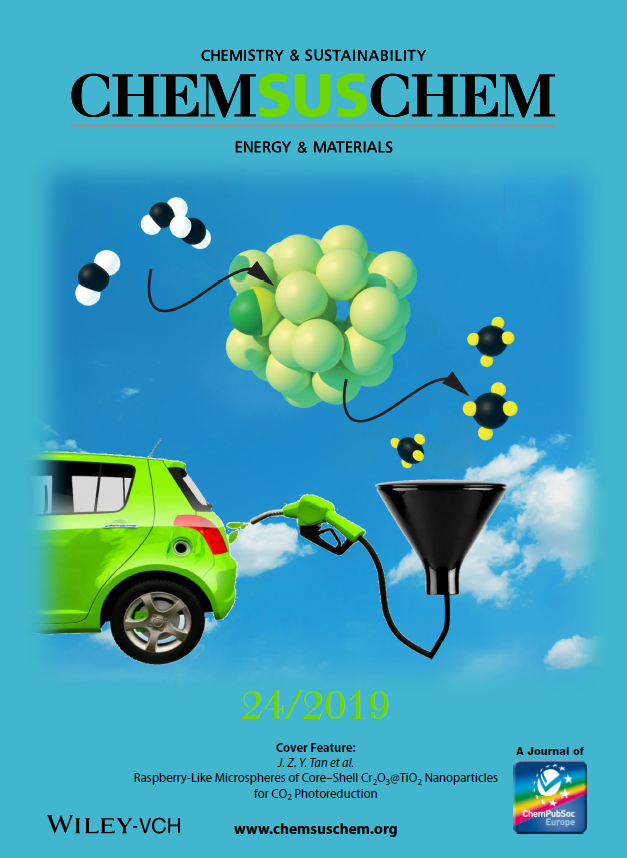
Researchers at the Heriot-Watt University and Murdoch University in Australia demonstrated the versatile synthesis approach to fabricate a complex nanostructured photocatalyst for solar fuels. The researchers designed and fabricated the raspberry-like microspheres with core-shell nanostructure, aiming to capture CO2 and convert CO2 into CH4, which can be as fuel. The raspberry-like structure offered a porous structure and a high surface area for CO2. In addition, due to the raspberry-like structure, a new interface between the core and the shell layer was formed at a relatively low temperature. They discovered the new interface formed between the core and shell layers within the nanoparticles provided an active site for the conversion to take place, leading to improved conversion efficiency.
The author Jeannie Z.Y. Tan says “The discovery of this project has demonstrated the importance of the photocatalytic active site on the photocatalyst.”
The nanostructured photocatalyst utilising CO2, which is recognized as one of the main contributors to the greenhouse effect, to generate valuable fuels demonstrated a promising approach to mitigate the environmental issue and to provide a solution to produce renewable fuels. Although the conversion efficiency is still far from commercialization, the discovery provided an insight into the active photocatalytic site, making the research a step closer to higher conversion efficiency.
The full article is published on the Oct 2019 Issue of Wiley-VCH Journal Chemistry & Sustainability and the title is “Raspberry‐Like Microspheres of Core–Shell Cr2O3@TiO2 Nanoparticles for CO2 Photoreduction“.
The Research Centre for Carbon Solutions is an interdisciplinary world-leading engineering centre, inspiring and delivering innovation for the wider deployment of technologies needed to meet net-zero carbon targets. Utilising our extensive suite of research equipment (including x-ray CT scanner, core flood rig, sorption, and thermogravimetric analyzers, chromatography and spectrometry systems, along with several bespoke engineering rigs) we facilitate numerous multi-national research projects in CO2 Capture and Storage, CO2 Utilisation, Low Carbon Systems, and Negative Emissions Technologies.
The RCCS lab welcomes collaborative research projects, contract analysis, and open access use. For further information, facility tours, or equipment demonstrations, please contact the RCCS Laboratory Manager, Dr. Sean Higgins.

